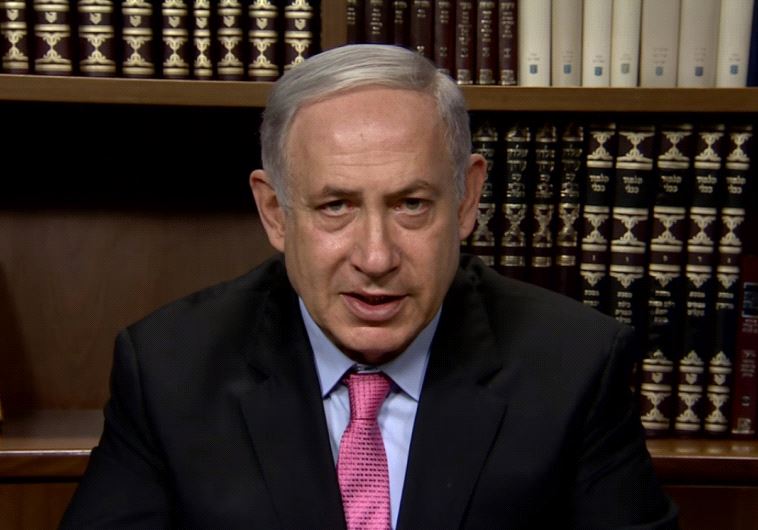Media Comment: That ethnic cleansing clip
These comments and many others did not answer why Netanyahu did not come out with his statement to Israel’s TV networks instead of YouTube.
 PM Netanyahu: Dear Arab citizens of Israel--take part in our society in droves(photo credit: screenshot)
PM Netanyahu: Dear Arab citizens of Israel--take part in our society in droves(photo credit: screenshot)